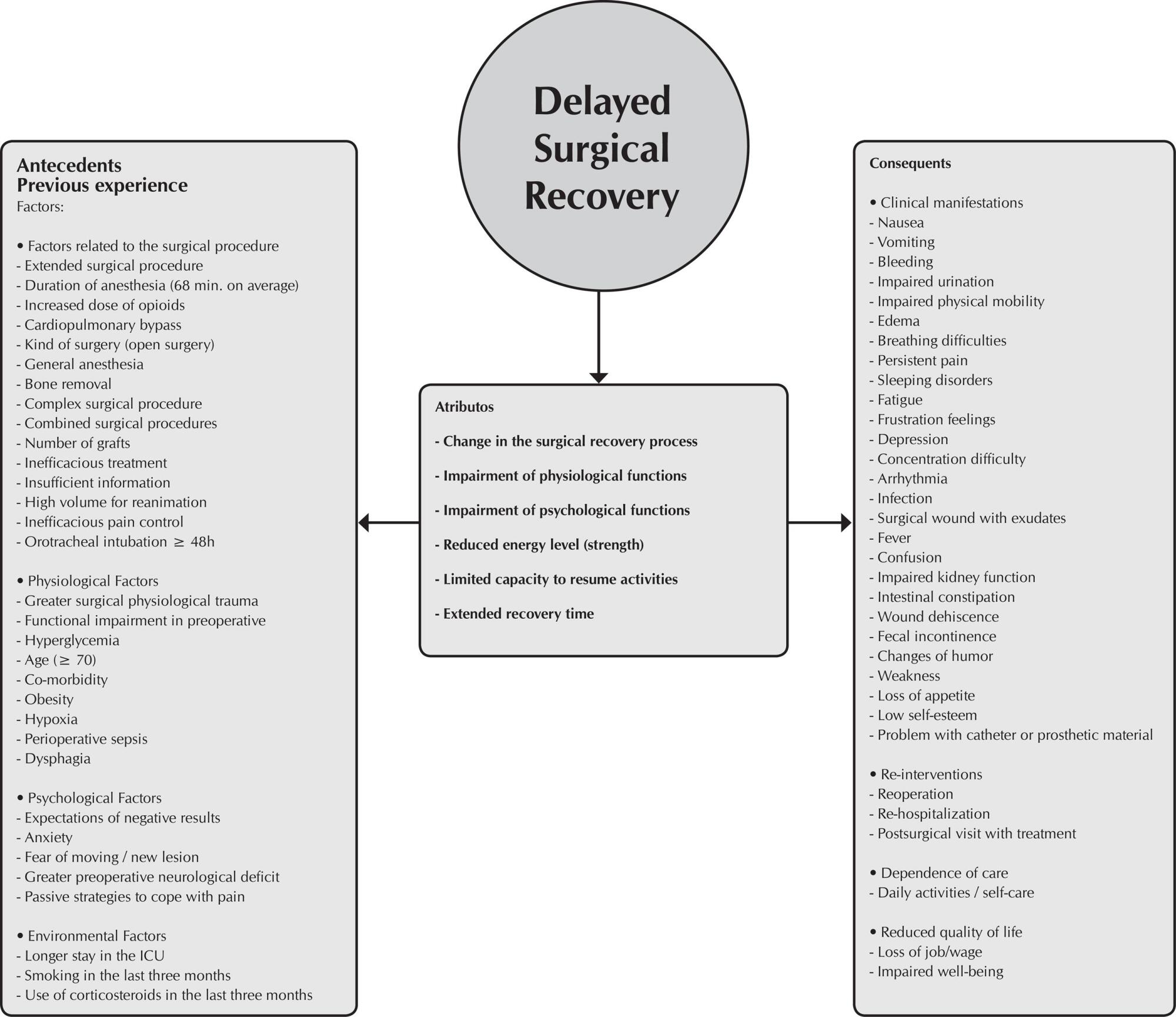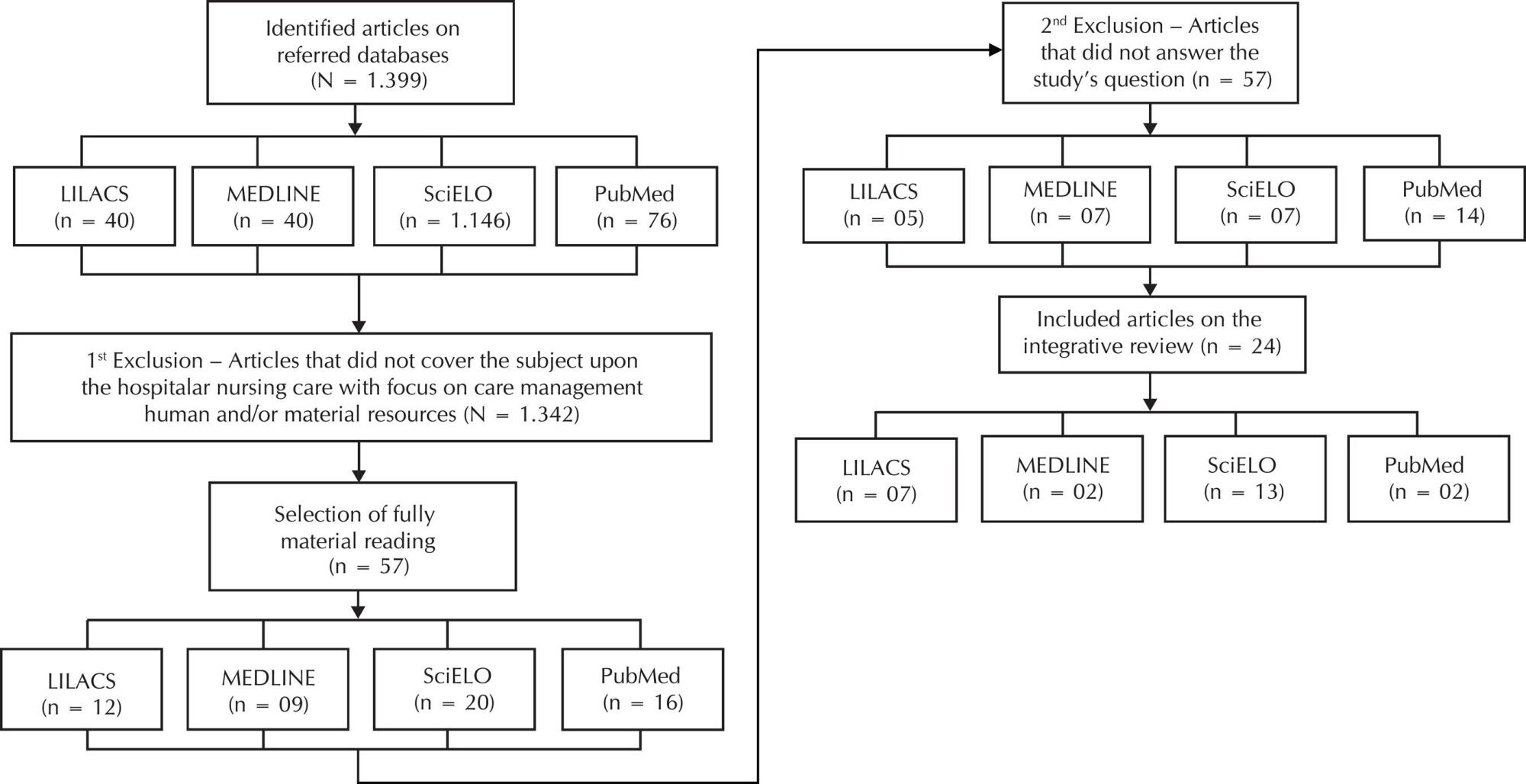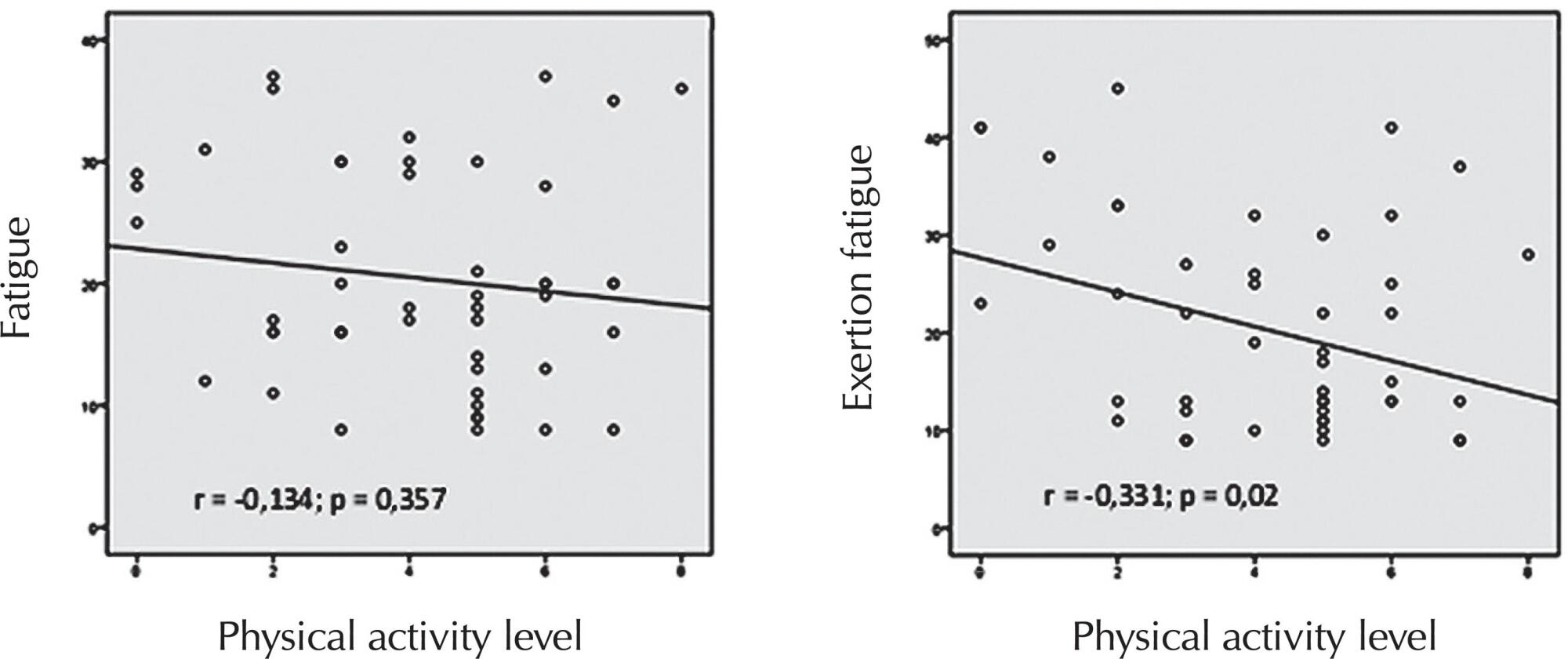-
01-01-2015
Tecnologias em saúde para análise espacial e diagnóstico situacional dos territórios: contribuições para a enfermagem
Revista Brasileira de Enfermagem. 2015;68(6):999-1000
Abstract
Tecnologias em saúde para análise espacial e diagnóstico situacional dos territórios: contribuições para a enfermagem
Revista Brasileira de Enfermagem. 2015;68(6):999-1000
DOI 10.1590/0034-7167.2015680601i
Views0Para a constituição de uma base organizativa dos processos de trabalho na Atenção Primária à Saúde em direção a uma nova prática social é importante o reconhecimento dos territórios e seus contextos, pois estes materializam as interações humanas, os conflitos, os problemas de saúde e necessidades humanas. Nesse processo de reconhecimento e diagnóstico situacional dos […]See more -
01-01-2015
Health technologies for spatial analysis and situational diagnosis of the territories: contributions to nursing
Revista Brasileira de Enfermagem. 2015;68(6):999-1000
Abstract
Health technologies for spatial analysis and situational diagnosis of the territories: contributions to nursing
Revista Brasileira de Enfermagem. 2015;68(6):999-1000
DOI 10.1590/0034-7167.2015680601i
Views0In order to establish an organizational basis for work processes in primary health care geared towards a new social practice, it is important to recognize territories and their contexts, as these materialize human interactions, conflicts, health problems and human needs.In the process of recognition and situational diagnosis of territories, technologies for spatial analysis can facilitate […]See more -
01-01-2015
CARTA DE FORTALEZA PARA A ENFERMAGEM BRASILEIRA
Revista Brasileira de Enfermagem. 2015;68(5):961-962
Abstract
CARTA DE FORTALEZA PARA A ENFERMAGEM BRASILEIRA
Revista Brasileira de Enfermagem. 2015;68(5):961-962
DOI 10.1590/0034-7167.2015680527
Views0APRESENTAÇÃOOs participantes do 18º Seminário Nacional de Pesquisa em Enfermagem (SENPE), promovido pela Associação Brasileira de Enfermagem (ABEn) e realizado pela ABEn Seção Ceará, aprovaram, em Sessão Plenária de Encerramento, no dia 03 de junho de 2015, a “Carta de Fortaleza para a Enfermagem Brasileira”. A ABEn vem a público divulgá-la, ao mesmo tempo em […]See more -
01-01-2015
Delayed surgical recovery: a concept analysis
Revista Brasileira de Enfermagem. 2015;68(5):953-960
Abstract
Delayed surgical recovery: a concept analysis
Revista Brasileira de Enfermagem. 2015;68(5):953-960
DOI 10.1590/0034-7167.2015680526i
Views0See moreABSTRACT
Objective:
analyze the concept of delayed surgical recovery.
Method:
the Rodgers’ concept analysis provided the procedural mechanisms to guide the study, and an integrative review was performed to achieve the second activity of the model adopted. The PubMed, CINAHL, EMBASE and LILACS databases were selected to search for primary studies.
Results:
sixty-six primary studies were included and served as basis to construct the use and meaning of delayed surgical recovery concept. In the analysis, six attributes were outlined, which are interrelated and underpin the research concept definition. Preliminary experience was identified as the antecedent. The consequences of the concept are expressed through clinical manifestations, re-interventions, dependence on care and reduced quality of life.
Conclusion:
the definition of the concept was constructed, and the antecedents and consequents were identified. The use and meaning of the delayed surgical recovery concept point to the use of the qualifier ‘impaired’ instead of ‘delayed’.

-
01-01-2015
Total Quality Management and hospital nursing: an integrative literature review
Revista Brasileira de Enfermagem. 2015;68(5):945-952
Abstract
Total Quality Management and hospital nursing: an integrative literature review
Revista Brasileira de Enfermagem. 2015;68(5):945-952
DOI 10.1590/0034-7167.2015680525i
Views0See moreABSTRACT
Objective:
to identify the available evidence in the literature on Total Quality Management in nursing administration.
Method:
integrative literature review of full text articles in Portuguese, English and Spanish, published between 2000 and 2011 in the LILACS, MEDLINE, SciELO and PubMed databases.
Results:
the sample comprises 24 periodical articles grouped by the following thematic categories: Theoretical assumptions; Practical application and Quality indicators. Despite the criticism of models derived from classic administration theories, experiences of success with the deployment of TQM have already marked the health and nursing setting in Brazil.
Conclusion:
Total Quality Management in managing of nursing care has being fully used in some health institutions, while others have adopted several of its principles. Two of the twenty four articles are intervention studies, which characterizes the necessity for clinical research in this area.

-
01-01-2015
Association between fatigue and functional capacity in patients with intermittent claudication
Revista Brasileira de Enfermagem. 2015;68(5):937-944
Abstract
Association between fatigue and functional capacity in patients with intermittent claudication
Revista Brasileira de Enfermagem. 2015;68(5):937-944
DOI 10.1590/0034-7167.2015680524i
Views0See moreABSTRACT
Objective:
to characterize fatigue and exertion fatigue in patients with intermittent claudication (IC), and to test their association with sociodemographic and clinical variables, walking capacity and level of physical activity.
Method:
forty-nine participants (66.6 years; 70% male) were studied. Validated questionnaires were used to assess fatigue (DUFS), exertion fatigue (DEFS), level of physical activity (BASIC) and walking capacity (WIQ).
Results:
participants had substantial fatigue (DUFS = 20.4+8.8) and substantial exertion fatigue (DEFS = 20.4+10.8). There was an association between the DUFS and marital status (p = 0,008). There was a statically significant association between DEFS with scores of the BASIC (r = .331; p = .02) and among DEFS with WIQ domains – walking distance (r=.359; p = .011) and climbing stairs (r=.331; p = .02).
Conclusion:
patients with IC have fatigue and exertion fatigue. Exertion fatigue might compromise the engagement of these patients in physical activity, one of the main components of IC treatment.

-
01-01-2015
Body mobilization for prevention of pressure ulcers: direct labor costs
Revista Brasileira de Enfermagem. 2015;68(5):930-936
Abstract
Body mobilization for prevention of pressure ulcers: direct labor costs
Revista Brasileira de Enfermagem. 2015;68(5):930-936
DOI 10.1590/0034-7167.2015680523i
Views0See moreABSTRACT
Objective:
to calculate the average total cost (ATC) on the direct labor costs (DLC) of nursing professionals in body mobilization of patients for the prevention of pressure ulcers.
Method:
this is a quantitative, exploratory and, descriptive research. We observed 656 preventive mobilizations and we calculated the cost by multiplying the time spent by professionals at a unitary DLC.
Results:
ATC with DLC for each Unit corresponded to: Medical Clinic R$ 5.38 for bed turning, R$ 5.26 for seating positions, R$ 5.55 for walking aid; Surgical Clinic R$ 2.42 for bed turning, R$ 2.30 for seating positions, R$ 2.96 for walking aid and Intensive Care Unit R$ 8.15 for bed turning, R$ 7.57 for seating positions, R$ 15.32 for walking aid.
Conclusion:
the knowledge generated can support management related to costs of human resources needed to efficiently and effectively nursing care.
-
01-01-2015
The mobilization of nurses for the non-interruption of nursing residence
Revista Brasileira de Enfermagem. 2015;68(5):923-929
Abstract
The mobilization of nurses for the non-interruption of nursing residence
Revista Brasileira de Enfermagem. 2015;68(5):923-929
DOI 10.1590/0034-7167.2015680522i
Views0See moreABSTRACT
Objective:
To analyze the strategies employed by nurses to maintain the nursing residence program at the Ophir Loyola Hospital and discuss the potential effects of this interruption on the state of Pará.
Method:
Social-historic research. Data were collected through primary sources, written documents, and oral testimonial; the secondary sources used were manuals and articles that approached the topic in question. The theoretical reference was based on the French sociologist Pierre Bourdieu’s ideas about the concepts of cultural, social, and symbolic capital, in addition to the habitus and field concepts.
Results:
During the nurses’ mobilization there was a strong political influence on the development of the crisis and the interruption of the nursing residence Program at the Ophir Loyola Hospital, with implications for the nurses’ qualifications and the health care delivered to the societyof Pará.
Conclusion:
The analysis showed the prevalence of partisan political interests at the expense of social interests, culminating in the interruption of the nursing residency.
-
ORIGINAL ARTICLE01-01-2019
The Brazilian Army nurses’ uniforms: visual identity in World War II
Revista Brasileira de Enfermagem. 2019;72(1):111-117
Abstract
ORIGINAL ARTICLEThe Brazilian Army nurses’ uniforms: visual identity in World War II
Revista Brasileira de Enfermagem. 2019;72(1):111-117
DOI 10.1590/0034-7167-2018-0414
Views1See moreABSTRACT
Objective:
To analyze the symbolic effects of the official military uniform of the nurses from Brazilian Army in World War II.
Method:
This research was developed using the historical method, with iconographic sources. The data were discussed based on the concepts of the social world theory, by Pierre Bourdieu.
Results:
The images selected demonstrate the own meaning of the uniforms, evidencing the functions and the social position of those who wear it, being private and obligatory to use it in the military field.
Final considerations:
In the case of the nurses from the Brazilian Expeditionary Force, the appropriation of uniforms promoted the visual communication representing military nurse in the context of war, at the same time it served for distinction purposes in the army, but not necessarily in the nursing field. Symbolically, they remained amongst the walls of the barracks even after the end of the war and, thus, they remained unknown and marked by the symbols of forgetfulness.

-
REFLECTION01-01-2019
The concept of vulnerability applied to Healthcare-associated Infections
Revista Brasileira de Enfermagem. 2019;72(1):299-303
Abstract
REFLECTIONThe concept of vulnerability applied to Healthcare-associated Infections
Revista Brasileira de Enfermagem. 2019;72(1):299-303
DOI 10.1590/0034-7167-2017-0584
Views1See moreABSTRACT
Objective:
To discuss the potentialities of using the concept of vulnerability to support measures for preventing and controlling healthcare-associated infections (HAIs).
Methods:
This theoretical study was conducted in steps: 1) presentation of markers that frame the concept of vulnerability; 2) presentation of the characteristics of the health events to which the concept of vulnerability is intended to be applied; 3) identification of research gaps that could be potentially filled by using the concept of vulnerability; 4) identification of the potentialities of using the concept of vulnerability to deal with HAIs.
Results:
Proposal of a framework for analyzing HAIs from a vulnerability perspective, including the individual and collective dimensions.
Conclusion:
Using the concept of vulnerability to study and deal with HAIs favors a new approach to an old problem, unlike the dominant studies that highlight the individual aspects of the practices in healthcare services.
-
REFLECTION01-01-2019
Operationality of concepts in Heideggerian phenomenological investigation: epistemological reflection on Nursing
Revista Brasileira de Enfermagem. 2019;72(1):304-308
Abstract
REFLECTIONOperationality of concepts in Heideggerian phenomenological investigation: epistemological reflection on Nursing
Revista Brasileira de Enfermagem. 2019;72(1):304-308
DOI 10.1590/0034-7167-2017-0941
Views1See moreABSTRACT
Objective:
To describe the investigative path of analysis and the operationality of concepts based on Martin Heidegger’s theoretical and philosophical framework.
Method:
Theoretical reflection on the phenomenon of pregnancy in a woman with heart disease.
Results:
Stages of the investigative movement were evidenced based on the pre-reflection related to the object of study and to the search for the phenomenal meaning, using the existential and analytical Hermeneutics as the approach and resulting in the reach of the phenomenal totality.
Conclusion:
The worldview of the researcher, who considered the subjectivities of the person in a health or disease situation, favored the announcement of the referential by the object of study. Knowledge production in the light of Martin Heidegger’s phenomenology unveiled phenomena lived and experienced in the Health and Nursing field, provided of epistemological rigor that demanded appropriation of concepts inherent to the existential analytics.

-
ORIGINAL ARTICLE04-18-2019
Teaching-service integration: building the educational workshop in healthcare
Revista Brasileira de Enfermagem. 2019;72(2):375-382
Abstract
ORIGINAL ARTICLETeaching-service integration: building the educational workshop in healthcare
Revista Brasileira de Enfermagem. 2019;72(2):375-382
DOI 10.1590/0034-7167-2018-0008
Views0See moreABSTRACT
Objective:
To identify the pedagogical strategies and the elements that determine the construction of the educational workshop in healthcare at the teaching-service integration process.
Method:
Collective case study with qualitative approach. The cases consisted of two undergraduate courses in nursing. Thirty-one interviews were conducted with healthcare professionals, professors and students, in addition to participant observation in seven basic health units (UBS) that received the students interviewed.
Results:
The following analytical categories emerged: teaching-service integration: articulating idealized situations with real situations; pedagogical workshop in health: development of collective pedagogical actions; reflection on the experiences in the pedagogical workshop in health: articulating the knowledge of the work world with the teaching world.
Final Consideration:
Despite the integration difficulties between teaching and service, we can conclude that their encounter generates a fertile field for the development of the educational workshop in healthcare. To this end, the agreement of the strategies presented in the constitution of the workshop is necessary.

-
ORIGINAL ARTICLE06-27-2019
Collective construction of bundle for immunobiological agents conservation best practices
Revista Brasileira de Enfermagem. 2019;72(3):671-679
Abstract
ORIGINAL ARTICLECollective construction of bundle for immunobiological agents conservation best practices
Revista Brasileira de Enfermagem. 2019;72(3):671-679
DOI 10.1590/0034-7167-2018-0406
Views0See moreABSTRACT
Objective:
to construct collectively with nursing professionals bundle for best practices of cold chain maintenance of immunobiological agents conservation at the local level.
Method:
a qualitative research of convergent care type. Bundle construction was guided by the Evidence-Based Practice criterion. Data collection was carried out from October to December 2016, through five workshops, with the participation of 21 professionals from 7 vaccination rooms of a municipality of Minas Gerais State. The framework developed by Morse and Field was adopted for data analysis.
Results:
through bundle, care is taken regarding refrigeration equipment temperature monitoring, contingency plan performance, recyclable ice coil setting and chamber use as refrigeration equipment.
Final considerations:
the chosen interventions began to guide the practice and promote a care based on safety and quality.
-
ORIGINAL ARTICLE09-16-2019
Management of nursing care in HIV/AIDS from a palliative and hospital perspective
Revista Brasileira de Enfermagem. 2019;72(5):1243-1250
Abstract
ORIGINAL ARTICLEManagement of nursing care in HIV/AIDS from a palliative and hospital perspective
Revista Brasileira de Enfermagem. 2019;72(5):1243-1250
DOI 10.1590/0034-7167-2017-0431
Views2See moreABSTRACT
Objectives:
To understand the meaning attributed by the nurse to the management of nursing care to the person hospitalized due to clinical complications caused by AIDS; to analyze actions related to palliative care; and to construct a theoretical matrix regarding the management of nursing care.
Method:
Qualitative, exploratory research, guided by the Grounded Theory. Seven nurses and ten nursing technicians were interviewed between May and September 2015, in a university hospital, located in Rio de Janeiro State, Brazil.
Results:
Five categories that covered the profile of the hospitalized person, palliative care, intervening conditions for care management, the need for professional qualification, and other aspects to better organize and manage care, including conflict management arose.
Final considerations:
The theoretical matrix values the quality of life, the need to understand the flow of care to avoid readmissions and not adherence to medications, requiring new research in the area, such as implementation.
-
ORIGINAL ARTICLE03-19-2021
Mobile application of the Terminology Subset for Coping with Domestic Violence Against Children
Revista Brasileira de Enfermagem. 2021;74:e20200287
Abstract
ORIGINAL ARTICLEMobile application of the Terminology Subset for Coping with Domestic Violence Against Children
Revista Brasileira de Enfermagem. 2021;74:e20200287
DOI 10.1590/0034-7167-2020-0287
Views1See moreABSTRACT
Objective:
to describe the development of a mobile application for the International Classification Terminology Subset for Nursing Practice for Coping with Domestic Violence Against Children.
Methods:
an applied research of technological development, based on the Analysis, Design, Development, Implementation and Evaluation model and on the terminological subset based on the Theory of Nursing Praxis Intervention in Collective Health framework.
Results:
the application is divided into: 1) “Definition”: characterizes the phenomenon of violence against children; 2) “Assistance”: electronic record of nursing care; 3) “Diagnosis Consultation”; 4) “Intervention Consultation”: nursing diagnoses, outcomes, and interventions related to children and their families, subdivided into Strengthening and Weariness group.
Final considerations:
built from scientific research, the application has the potential to support nursing care, presenting, in an organized and systematic manner, nursing diagnoses, outcomes, and interventions, in addition to enabling the registration of cases under monitoring.

-
ORIGINAL ARTICLE09-05-2022
Spirituality and religiosity expressed by relatives of drug users: contributions to health care
Revista Brasileira de Enfermagem. 2022;75:e20210724
Abstract
ORIGINAL ARTICLESpirituality and religiosity expressed by relatives of drug users: contributions to health care
Revista Brasileira de Enfermagem. 2022;75:e20210724
DOI 10.1590/0034-7167-2021-0724
Views0See moreABSTRACT
Objective:
to analyze the expressions of spirituality and religiosity of relatives of people who abuse or are dependent on psychoactive substances.
Methods:
exploratory-descriptive research that dialogues with the spirituality and religiosity conceptual framework. It was performed at an outpatient clinic specialized in drug treatment in southern Brazil. Semi-structured interviews conducted with 11 relatives of patients undergoing treatment were analyzed by content analysis.
Results:
the findings were grouped into two categories: forms of expression of spirituality and religiosity practices; and their influence on relatives’ lives. Spirituality and religiosity almost always serve as a protective factor against feelings of anguish, conflicts and loneliness.
Final considerations:
despite the important role of expressions of spirituality and religiosity for many relatives, not everyone seems to benefit from them. Health professionals should consider these expressions in the construction of comprehensive health care for relatives.
Search
Search in:
Nuvem de Tags
Adolescente (85) Atenção Primária à Saúde (239) COVID-19 (91) Criança (91) Cuidados de Enfermagem (269) Educação em Enfermagem (151) Educação em Saúde (139) Enfermagem (930) Enfermagem Pediátrica (86) Estudantes de Enfermagem (77) Estudos de Validação (131) Família (87) Idoso (208) Promoção da Saúde (99) Qualidade de Vida (104) Saúde do Trabalhador (86) Saúde Mental (145) Saúde Pública (82) Segurança do Paciente (150) Tecnologia Educacional (100)



